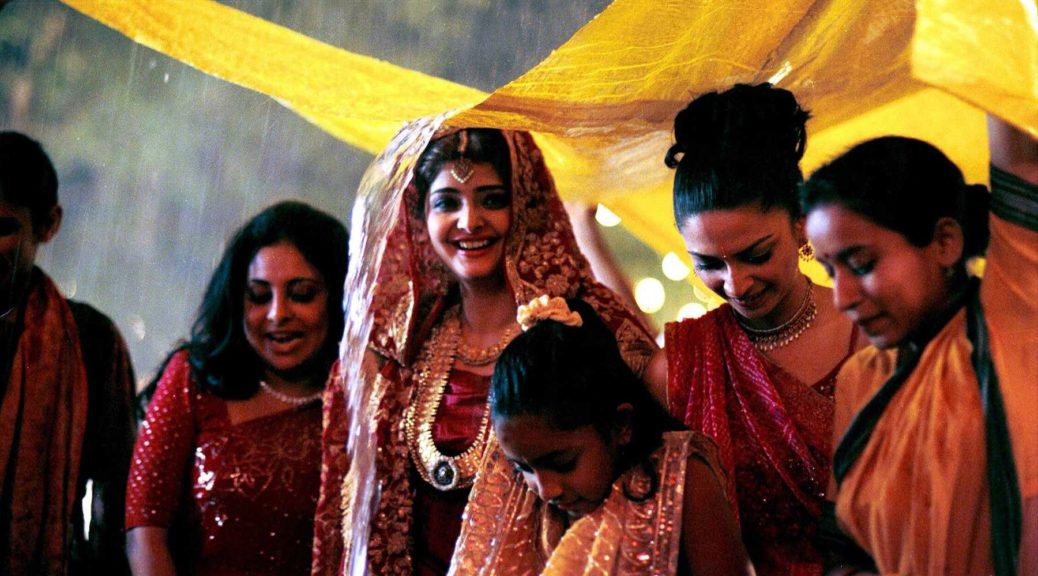2001’s MONSOON WEDDING was an international co-production. Writer Sabrina Dahwan wrote it while she completed her MFA at Columbia in the States, it takes place in New Delhi, and the dialogue is a blend of English and Hindi. It was produced by IFC films with a budget of $7M, and released by Focus Features, to a successful worldwide gross of over $30M. It was nominated and won a lot of awards, and has been released as part of the Criterion Collection. It’s also been turned into a stage musical.
Here’s the trailer:
While not Indian-American director Mira Nair’s first film (1988’s SALAAM BOMBAY! received an Academy Award nomination for Best Foreign Language Film), MONSOON WEDDING was a big hit for her, and certainly raised her profile in Hollywood. Among the many projects she’s made since are THE NAMESAKE and VANITY FAIR. She’s also gone on to mentor young filmmakers, and set up an annual filmmaker workshop in Uganda.
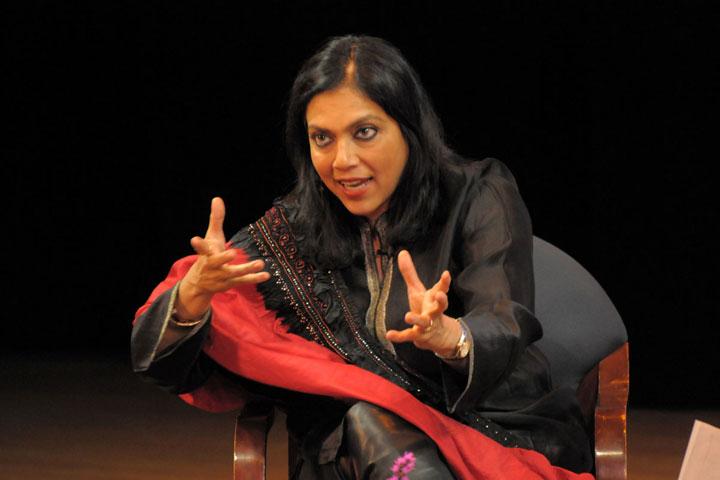
Nair started off as a documentary filmmaker, which heavily influences the style of MONSOON WEDDING. Every scene is either handheld or using a Steadicam, which makes the film feel a little more real and a little less polished than we might see in other work. Sometimes this leads to a little bit of messiness – there’s one scene where two characters are communicating with each other while sharing the same eyeline, which is disorienting for the viewer, and sometimes the lighting is inconsistent. In one scene, the character who is the center of the scene is out of focus. But all of this is part of what makes this film seem so firmly rooted in the Indie world. Nair loves Cinema Verite, which is a style that embraces the imperfections of real life.
SPOILERS AHEAD
MONSOON WEDDING is centered on the wedding of an arranged couple, but that’s all just the centerpiece for a series of relationships between the wedding guests. The bride – Aditi- has been having an affair with a married man, and wants to prevent it from getting the way of her new life. We see so many stories about arranged marriages being the absolute worst, that it was kind of nice to see how they can become a love story too, as she realized that she’s happy to leave behind her toxic relationship and embrace her new husband. It reminded me of the novel NECTAR IN A SIEVE, about a couple who were arranged but grow to love each other through their partnership in life. I’ve thought about that novel often, and how the couple in it created love out of being together, instead of the other way around.
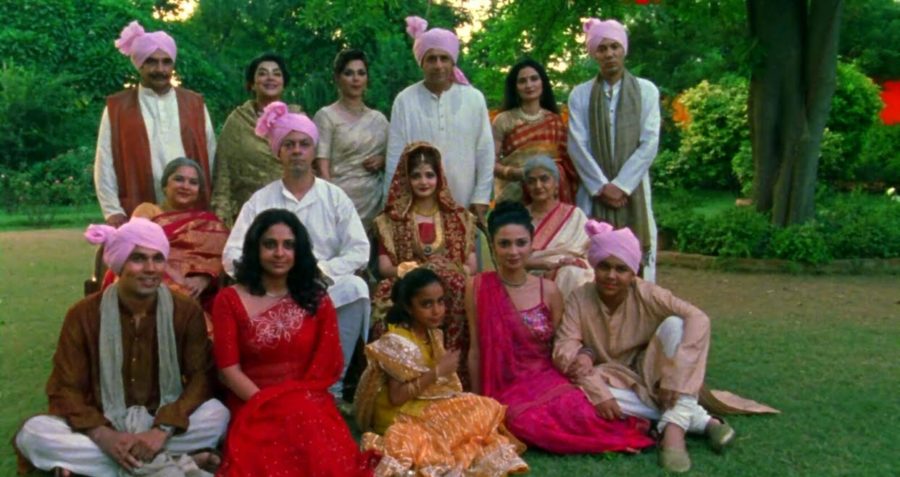
If there is a “plot centric” relationship in MONSOON WEDDING, it’s that of Ria and Tej Uncle. He molested Ria when she was a child, and that is clear from the second they see each other. There is no dialogue needed – the minute we see Ria respond to his presence, we immediately know what happened. And Ria’s mission is to develop the courage to stop him from doing it to another child at the wedding. Eventually it comes to a head and she confronts him in front of Lalit, Aditi’s father and her guardian.
Even though the confrontation happens late in the film, this sets off an emotional journey for Lalit. His relationship with his wife doesn’t appear to be sexual – they sleep in separate twin beds, and although she tries to make a move on him, there just doesn’t seem to be that desire there anymore, if there ever was. But that gives Nair a great opportunity to show a kind of relationship we don’t see much in entertainment – love based around affection without needing sex. There are plenty of people who don’t see sex as a necessity in order to have romantic love – Asexuals, specifically – and their relationships are every bit as valid even if they aren’t getting naked.
But as much as Lalit loves his wife, he is having difficulty with his son, who likes to cook and dance and sing, and isn’t remotely interested in sports or “manly” things, as Lalit sees it. He’s worried that his son is gay, and wants to figure out how to make him more of a man.
That’s why his reaction to Ria’s revelation about her abuse is so significant. At first, he begs Ria to put on a happy face and attend the wedding, knowing her abuser will be there. As women are so often asked to do, Ria must put her suffering aside for the sake of the family and decorum. She has to sit in front of Tej Uncle and smile for a family photo – and anyone who sees a photo of a woman smiling with her abuser, please watch this and learn something about how often we fake it for the good of everyone else. This eventually breaks Lalit’s heart, and he orders Tej Uncle to leave. This moment means EVERYTHING to Ria, and for Lalit, THIS is what manliness is. It’s not playing sports. It’s standing up for what’s right and throwing an abuser out of your home, even if that causes a ruckus.
There are other relationships happening in this film – notably the event planner falling madly in love with the family servant – but once the story with the abuser is resolved, the story becomes a celebration of love. Everyone dances, including the servant and the event planner, who are brought in to be equals with the family under the tent.
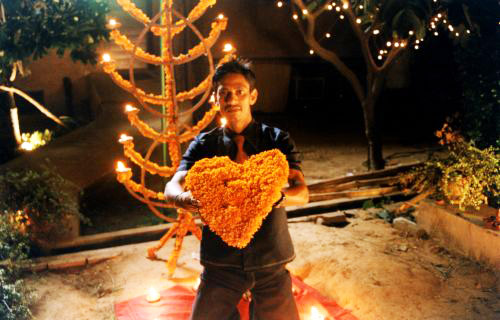
This film is a celebration of Indian culture, full of color – specifically orange marigolds, which I googled and discovered are a big deal in Indian celebrations. In MONSOON WEDDING, the event planner and the servant girl use them as symbols of how they feel. They eat them when they’re happy and falling in love, and she rips them to pieces when she’s embarrassed and angry at being caught trying on saris by the event planning crew. And in the end, they are draped around the groom as he arrives in the rain to greet his bride.
I’m not one for movies where everyone ends up paired up at the end – I usually find them groan worthy, but in this film, it kind of works. We even get a little moment for Ria, as a new guy shows up at the very end of the film and gives her the sexy eye, right before she runs happily into the rain in slow motion. Cheesy? Yes. Very. But also appropriate. Weddings are cheesy. Let the cheese go with wild abandon.
What I enjoyed about watching Monsoon Wedding was being exposed to a culture I don’t know much about. It also melted my cold, cynical heart a teeny bit, and made me really want to have more orange marigolds in my life. They seem kind of magical.
Next week I’ll be talking about Hawaiian director Destin Daniel Cretton’s SHORT TERM 12.
Please comment below or email me at TheOtherVoicesATH@gmail.com to join the conversation. I encourage it! You can also follow me on Twitter: @TheEmilyBlake.
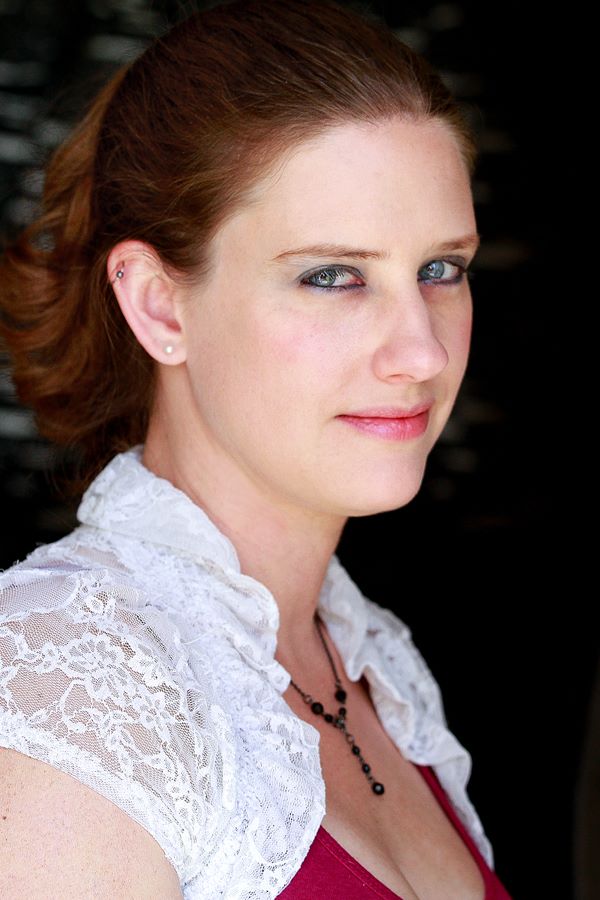
Emily Blake writes screenplays with lots of fight scenes. She is a vocal advocate for feminism, polyamory, kink, and sex positivity. She makes most of her money as a script supervisor for film and television, but she also makes cosplays for clients out of her little apartment in Los Angeles.

